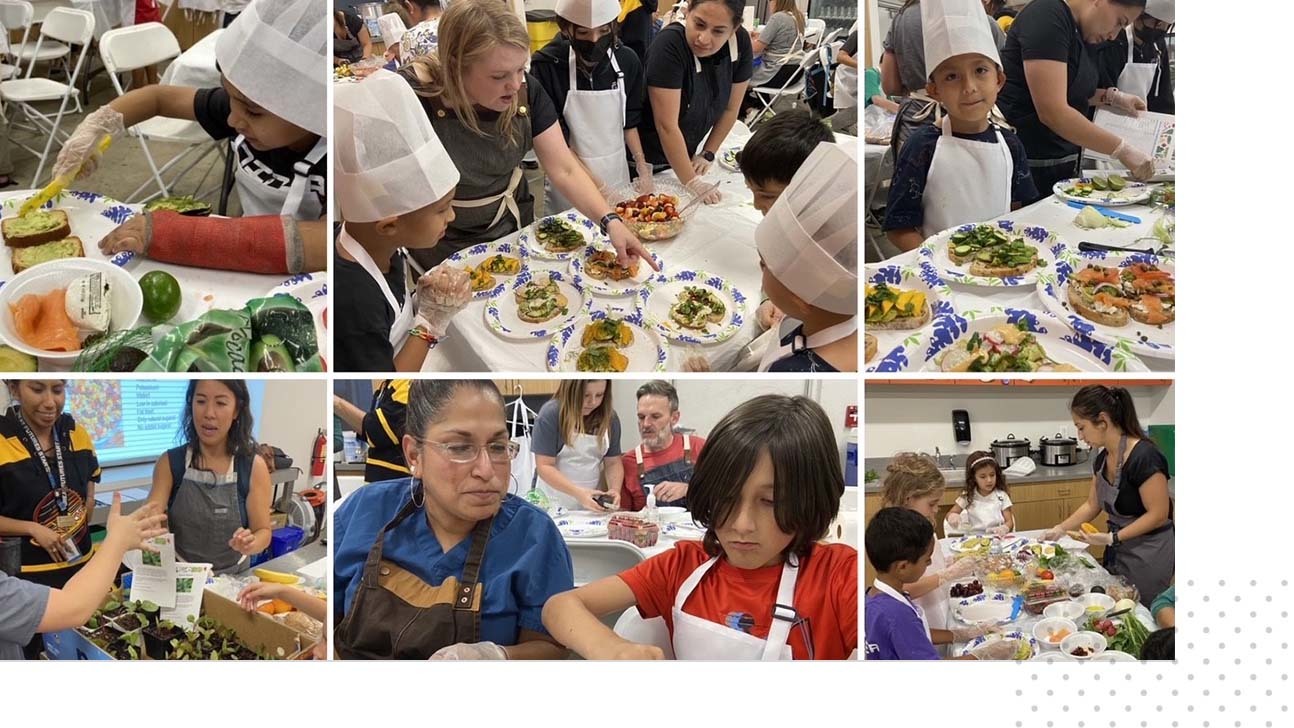In a summer session of Eat Well: Culinary Medicine — an educational offering within the Department of Pediatrics that focuses on how food impacts health and how to incorporate nutrition and healthy eating practices into different lifestyles — pediatric trainees at Dell Med joined the Boys & Girls Club of the Austin Area to provide a hands-on cooking lesson to parents and children.

The session was sponsored by Dell Children’s Health Plan and featured Culinary Medicine’s program directors, Hanh Keyburn, D.O., and Keli Hawthorne, M.S., as well as pediatric hospital medicine fellow Kelsey Fath, M.D. Together they led the session and created several cultural variations of avocado toast and colorful fruit salads.
Parents were all smiles as their children worked alongside them to cut up produce such as herbs, cucumbers, radishes, fennel and all kinds of fruit. Most children shared that they had tried at least one new food while in the session and enjoyed it; they were open-minded and positive about trying foods they had not eaten before. One example: Japanese furikake, a crunchy, salty seasoning made of seaweed nori and sesame seeds. Children were overheard asking parents if they could do more in the kitchen, and parents were very encouraging and supportive of the idea, which is a success for the program.
Families also went home with personal spinach malabar plants to nurture and use in future recipes. Culinary Medicine is so proud to support and encourage families preparing healthy foods together, and it looks forward to future programming with Boys & Girls Club of the Austin Area.